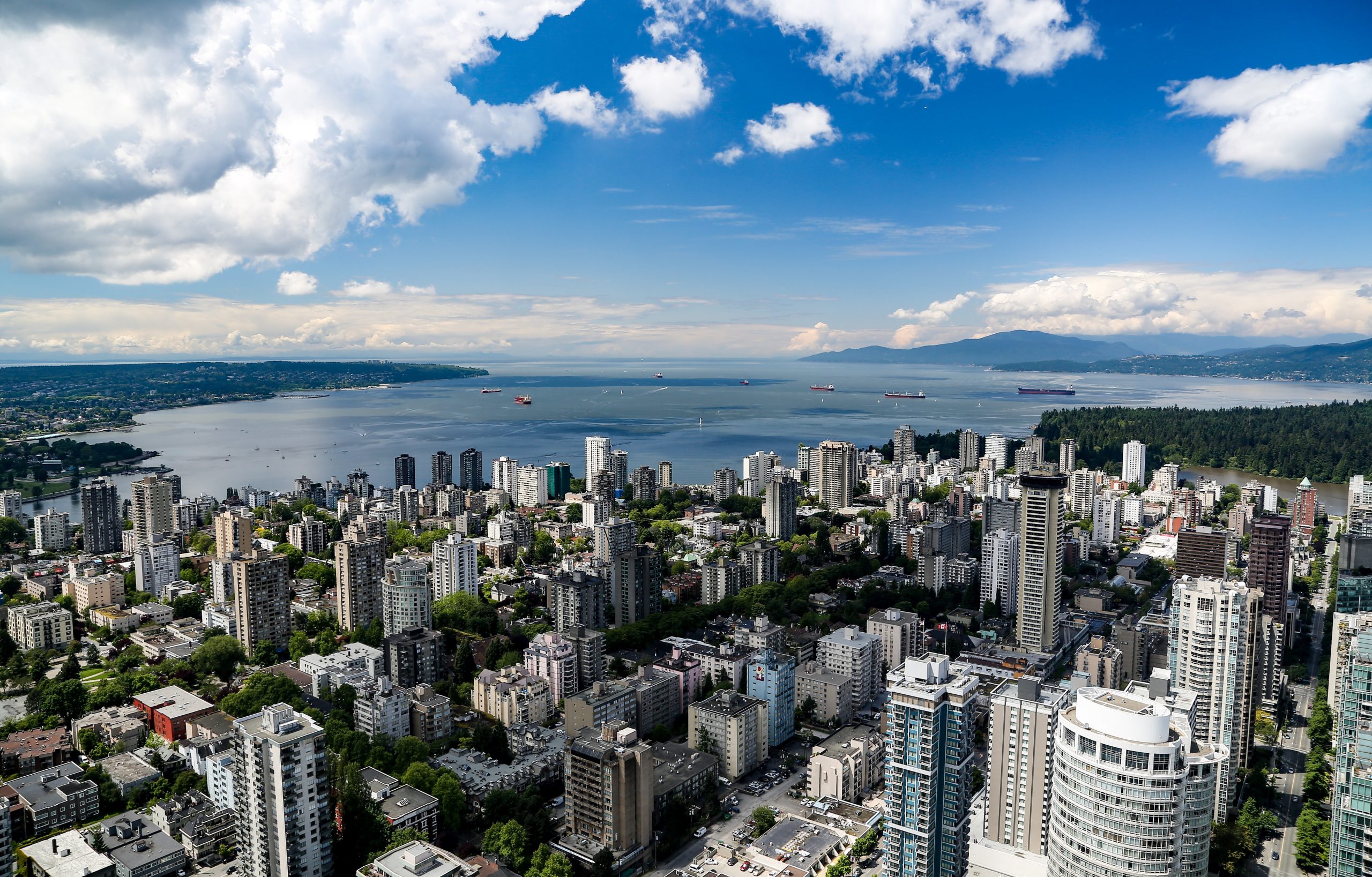Moving from Canada to Norway is an adventure that opens the door to a lot of new experiences in one of Europe’s most captivating countries. From Oslo, Norway’s extraordinary capital city, to the charming Norwegian language that distinguishes this country in the Nordic region, the “Land of the Midnight Sun” offers a unique blend of tradition and modernity.
Read on to discover what you need to know and do before making your move to Europe. Learn about the cost of living in Norway, and explore the countless opportunities that await you in this gem among European countries, all of which are sure to captivate your heart.
Moving to Norway: Everything to know and do
What to know before your move from Canada to Norway
1. First steps before moving to Norway
Visa requirements
As a Canadian citizen, the only ways you can move to Norway are if:
- You want to work in Norway.
- You want to study in Norway.
- You want to stay with a host family as an au pair.
- You have a family member, spouse, or cohabitant in Norway who is a Norwegian citizen or legal resident.
*In most cases, you can only apply for a residence permit after residing in Norway for 5 years and achieving a certain level of understanding of the Norwegian language. Studying in Norway for 5 years does not count towards the required number of years.
Working Norway
Finding work before coming to Norway is the most efficient way to move to Norway. You can also apply for a tourist visa and find work before your visa expires. After finding a job, you then can apply for a work residence permit.
Studying in Norway
To study in Norway, you must obtain a confirmation of your admission to an approved educational institution. After confirmation of admission, you must apply for a residence permit for studies. You must also have a valid passport, proof of housing and proof of sufficient funds.
Becoming an au pair in Norway
While living in Norway as an au pair is temporary, it is a great way to broaden your language skills and learn about Norwegian culture. To work as an au pair in Norway, you must be between 18 and 30 years of age and have an offer of employment from a host family.
Joining family in Norway
If you want to join your spouse or children in Norway and you meet all the entry requirements, including sufficient funds, you will be granted a residence permit. You cannot join non-immediate family in Norway. Your immediate family member must be a Norwegian citizen or hold a residence permit.
Norway-Canada Youth Mobility Agreement
If you are a young person between the ages of 18 and 35 you can apply for a visa to temporarily work or study in Norway due to the Norway-Canada Youth Mobility Agreement. You must prove that you have sufficient funds for the first 3 months of your stay. The first period of the validity of your visa is 12 months and can usually be extended 12 months more.
Finding a job
When searching for a job in Norway, you’ll find a variety of options available to you. High-demand professions in Norway include healthcare professionals, IT specialists, engineers, and teachers.
Consider visiting the websites of companies you’re interested in and reaching out to them directly. Networking plays a crucial role in the job search process. Additionally, there is a work and travel program in Norway through the Youth Mobility Program for Canadians that might interest you. These resources are invaluable for your job search during your transition to Norway, helping you achieve a better work-life balance.
Getting there
When planning your relocation from Canada to Norway, it’s crucial to consider your transportation options. Flying is the most popular choice due to its speed and convenience. Norway is home to major international airports like Oslo Gardermoen, Bergen Flesland, and Stavanger Sola, ensuring seamless access and extensive global connectivity.
The flight duration from Canada to Norway can vary based on your departure city, layovers, and prevailing wind patterns. On average, a non-stop flight from major Canadian cities like Toronto or Montreal to Oslo typically lasts around 7 to 8 hours. For those on the West Coast, such as Vancouver, flight durations may be slightly longer, generally ranging from 9 to 10 hours.
What should I look for in an International Moving Company?
Shipping your things to Norway takes about 1–3 days by plane and 10–15 days by boat. You can easily move your things from Canada to Norway by plane or boat, but make sure the moving company you decide on is reliable. So when opting for an international moving company, here’s what you should look for:
- Insurance is included (ask what’s included)
- Rates are not extravagant (compare with other companies)
- They have many Google reviews that are over 4 stars.
- Customer service and transparency is their priority.
Car shipping to Norway?
Unless they have significant emotional attachment to their car, most Canadians choose to leave their cars behind when moving to Norway due to the elevated shipping and import fees and the long vehicle inspection process. If you must absolutely ship your car to Norway, here are the steps to follow:
- Get various quotes from the best car shipping companies. A trusted car shipping company will have insurance, good reviews, and will make customer service their priority.
- Choose the port of departure.
- Choose the port destination.
- Prepare the car by cleaning it and emptying the tank to ⅛ full, or you may have to pay a fee upon arrival.
*Ask your chosen car shipping company for additional requirements.
Must dos before your arrival
- Figure out the type of visa or residence permit you need for Norway.
- Make sure your passport is valid for your entire stay in Norway, renew it if necessary.
- Find a place to live in Norway before you arrive. You might want to rent a temporary place until you find a permanent home.
- Understand how moving to Norway affects your taxes. Inform the Canadian tax authorities about your move and manage your taxes in both countries.
- Decide what to take with you and what to leave behind. Arrange for shipping or hiring a company experienced in international moves.
- Learning the Norwegian language can make it easier to integrate into society and adapt to daily life.
Language in Norway
Norway has two official languages: Norwegian and Sami. Most people in Norway speak Norwegian, and a lot of them get by in English. While there is no legal requirement stating that you have to speak Norwegian to move to Norway, it will be hard to socialize and understand the life around you if you don’t understand Norwegian.
2. Upon your arrival in Norway
Must dos right upon your arrival
- Get to know the local area, including transportation options, and locate essential services like hospitals, pharmacies, and grocery stores.
- Familiarize yourself with the Norwegian healthcare system to ensure you understand how it works.
- Open a bank account and transfer funds from your Canadian account to ensure financial access in Norway.
- Set up your cell phone and ensure it’s unlocked for the SIM card you’ll use in Norway.
- If necessary, obtain a driver’s license for convenient transportation.
Healthcare
Norway’s health system is top-rated, public and free for all of its citizens and holders of resident permits who are under 16. Over the age of 16, a deductible is paid each year, but the service still remains very affordable. If you have secured employment in Norway, you will automatically be signed up for the Norwegian National Insurance Scheme. If you are a student or an au pair in Norway with a valid residence permit, you are also automatically enrolled in the Norwegian National Insurance Scheme.
Setting up your cell phone
Cell phone service in Norway is generally of high quality, ensuring connectivity in most areas, unless you find yourself in a remote small town far from the city center. It’s essential to ensure that your phone is unlocked before your arrival in Norway. This allows you to easily purchase a Norwegian SIM card, which is readily available at cell phone shops and 7-Eleven stores. The main Norwegian cell phone providers include Telenor, Telia, and Lyca Mobile.
Getting a driver’s license
If you hold a valid Canadian driver’s license and are 18 years of age, you can drive in Norway for up to one year before exchanging for a Norwegian one. After one year, you must pass a practical driving test to obtain your Norwegian driver’s license.
Car Insurance in Norway
In Norway, third party liability insurance and fire insurance are both mandatory car insurances. Fire insurance will cover the damage done to the car if a house burns down and takes the car with it. The top car insurance companies in Norway are Cordan Forsikring, Storebrand, and If...
Setting up a bank account
To open your bank account in Norway you will need either your D Number or your Personal Number, a passport sized-photo, address proof, and in many cases, a recommendation letter from a bank in Canada. The most popular banks in Norway include Bank Norwegian, Luster Sparebank, Storebrand Bank, DNB, and Sparebanken.
Currency in Norway
In Norway, the currency is known as the krone and in plural form is known as kroner. Bills are provided in 50, 100, 200, 500, and 1,000 kroner. Coins are provided in 50 øre, 1 krone, and 5, 10, and 20 kroner. Norwegian’s rarely use cash, so make sure you can also pay with a credit card or debit card.
Get your residence card
Within the first 7 days of arriving in Norway you must book an appointment at your local police office to get your residence card. You can book this appointment through the residence portal.
Get your Personal Number (Personnummer)
If you’re staying in Norway for more than 6 months, you will need a Personal Number. If you are staying less than 6 months in Norway you will need a D Number. The Personal Number (Personnummer) in Norway is equivalent to the Social Insurance Number in Canada. The only way to get a Personal Number is in person at your local tax office in Norway. It takes 10 days to 4 weeks to receive. You will need this number to open a bank account, pay taxes, access the public health system.
3. Best places to live in Norway

Norway, celebrated for its breathtaking landscapes and exceptional quality of life, consistently ranks among the world’s safest countries, much like Canada. If you’re contemplating a move to this Nordic nation and are contemplating the perfect city, explore the following:
|
Cities |
Characteristics |
|
Oslo |
Norway’s capital and largest city, offering a dynamic urban lifestyle and vibrant cultural scene, with green spaces and museums. |
|
Bergen |
Fascinates with a scenic harbor, rich maritime history, good job prospects in the maritime sector. All surrounded by mountains and fjords. |
|
Trondheim |
A historic gem in central Norway, this city boasts a beautiful cathedral, vibrant student life, and a welcoming atmosphere. |
|
Ålesund |
A port town known for its art nouveau architecture with colorful houses, set against a backdrop of fjords and the Atlantic Ocean. |
|
Stavanger |
Best known as Europe’s oil and energy capital, it also showcases a vibrant cultural scene and the stunning landscapes of western Norway. |
Setting up home services
Norway is one of the top countries in the world when it comes to using renewable energy. In fact, 98% of Norway’s electricity is derived from renewable sources. The cost of electricity in Norway is a bit higher than in Canada. Electricity in Norway costs a flat fee of around 0.570 kWh, compared to Canada’s average of 0.174 kWh. You can pay your bill online, in person or by mail. Contact your local electricity supplier to get i set up. Tap water in Norway is one of the purest waters in the world and in most places can be consumed. Contact your local water supplier to get it set up.
The Internet in Norway in terms of pricing is like Canada, and the quality is considerably good. You should expect to pay $60-$70 CAD a month for the internet, along with an additional installation and equipment fee. The main internet providers in Norway are Telenor, Altibox, and Telia.
Should you rent or buy?
If you are thinking of renting in Norway, you have to act fast, as apartments and houses don’t stay long on the market. There are no restrictions for Canadians immigrants when it comes to buying a house in Norway, so it may be a good idea to look into purchasing as an alternative to renting due to the shortage of high-quality rentals. Finn.no and Hybel.no are both great websites to help you with your apartment or house search in Norway.
Home insurance in Norway
While home insurance is not mandatory by law, most mortgage brokers will require home insurance as a perquisite for the loan. Some recommended home insurance companies in Norway SpareBank, LOfavør, and If…
4. Cost of living in Norway
|
Category |
Monthly cost |
|
1 bed apt rent outside city center |
$1,124.8 |
|
Groceries Numbeo’s grocery list ($90.99 multiplied by 4) |
$363.96 |
|
Utilities Electricity, heating, cooling, water, garbage |
$273.91 |
|
Internet with 60 Mbps |
$68.71 |
|
Transit pass |
$95.89 |
|
Entertainment Meal, taxi, movie |
$152.75 |
|
Gym membership |
$52.48 |
|
Total |
$2,132.50 |
Tips for Buying Groceries in Norway
Food in Norway tends to be expensive due to its reliance on imports from other European countries. Be prepared to pay premium prices for fresh produce and meat! Grocery stores in Norway are widespread, available in nearly every city.
However, in major cities like Oslo, Bergen, and Stavanger, prices may vary depending on product availability. Some of the most popular grocery store chains in Norway include Meny, Rema 1000, Coop, KIWI, and Bunppris.
What to Expect from your New Life in Norway?
While Norway does have a very cold climate, you can expect to see a beautiful view anywhere you look. It’s a great idea to learn Norwegian, so you can make friends easily and be aware of what is happening around you. Expect a great quality of life and don’t forget to look up to see the northern lights!
5. The weather in Norway
Norway’s weather is a year-round adventure! Winters are cold and dark, but they bring the fun of famous activities like skiing and snowmobiling. In the north, it gets even colder, and you’ll find loads of snow for a winter wonderland vibe. Plus, there’s a bonus: you can catch the fantastic Northern Lights painting the winter skies with vibrant colors.
Now, when summer rolls around with temperatures ranging from 15-25 °C, it’s short but perfect for getting ready to enjoy outdoor fun in Norway’s stunning nature. From the fjords to lush forests and peaceful lakes, there’s something for everyone to savor in this beautiful Nordic land when the sun shines!
6. What to do as a local in Norway
As a local in Norway, there’s a world of experiences to enjoy. If you’re a food enthusiast, you can explore Oslo’s vibrant food scene, enjoy fresh catches at Bergen’s historic fish market, or savor authentic Norwegian flavors at Tromsø’s seafood restaurants.
For those who love the outdoors, there are iconic destinations to visit, like the Geirangerfjord, the ski resorts in Trysil, and the hiking trails of the Lofoten Islands. It’s the perfect recipe for a mix of gastronomy and adventure in “The Land of the Midnight Sun”. And if you reside in the northern regions, don’t forget to keep an eye on the sky for the mesmerizing Northern Lights!
7. Fun facts about Norway
- Norway, located in the Arctic Circle, enjoys 24-hour daylight during the summer, which is why it is often referred to as the “Land of the Midnight Sun”.
- Norway has the world’s highest concentration of fjords, including UNESCO-listed Geirangerfjord and Nærøyfjord.
- Norwegians call their country “Norge”.
- Norwegian folklore includes stories about trolls and mythical creatures.
- Norway’s cold winters make it a “Winter Wonderland”.
- Norway offers prime Northern Lights viewing.
Conclusion
Moving from Canada to Norway promises a remarkable adventure filled with breathtaking landscapes, rich culture, and a high quality of life. As you embark on this exciting journey, it is essential to plan in advance to ensure that every detail is in place for a seamless transition.
One key factor to consider is researching the best international moving companies in Canada. Choose your movers wisely; it can make your move to Norway more enjoyable and less stressful.





